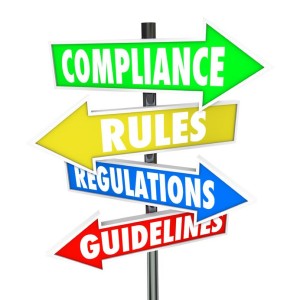 HOAs have rules and regulations in place to protect the best interest of residents and other stakeholders. In a perfect world, every association would prioritize the fair and consistent enforcement of its rules.
HOAs have rules and regulations in place to protect the best interest of residents and other stakeholders. In a perfect world, every association would prioritize the fair and consistent enforcement of its rules.
But we don’t live in a perfect world, of course. The pursuit of effective governance seems simple in theory, but the execution is where boards often fall short. That said, board members individually and collectively would benefit from taking a step back and evaluating their everyday practices. Here are a few values board members should embrace to ensure their governing process is effective.
Transparency: You can never be too inclusive or transparent in the context of stakeholder relations. That means making board meetings and annual elections open to residents. Your constituents should feel encouraged to give feedback and assured that it’s heard and acted upon if necessary. In other words, board members need to send the message loud and clear that they are here to serve.
Impartiality: While humans are innately biased, that doesn’t mean we can’t make an effort to act as objectively as possible. Know that board members are charged with operating in a fiduciary capacity. This means you’re entrusted with acting according to what’s in the association’s best interest. That calls for making decisions on those grounds alone and removing your own interests from the equation.
What does this mean exactly? It’s not acceptable to solicit or accept gifts, gratuities, or favors, especially with those given with the intent of influencing a decision or benefitting from financial gain. Conflicts of interest are also part of this territory. Here’s an example: Your board plans to vote on a painting contract. Say your cousin owns a painting company. It’s best if your relative doesn’t enter a bid of course. However, if he does, at a minimum, you should disclose your connection and should excuse yourself from any discussion on the contract. Also insist that the board minutes note that you’ve made such a request so there’s no question that you acted in good faith.
Confidentiality: Matters discussed in a board meeting are to remain between the people in the room. For example, if your association is pursuing legal action related to an owner or vendor, you should never discuss board actions and decisions with outsiders. This is meant to be privileged information.
Consistency: As unpleasant as it can be, HOA boards must set and enforce policies related to fines and other disciplinary matters. To that end, it’s critical that said policies clearly spell out what happens in the event action is needed so as to avoid the appearance of favoritism.
Communication: Preferences related to the desired form of communication can vary. Don’t be afraid to change up your approach. Sending a letter fulfills legal obligations. But don’t be shy about picking up the phone or sending a text message (in addition) if you determine that’s going to be better received or resolve the issue more quickly.
Civility: The first attempt to notify a resident should make it clear that you want to help them so they can fulfill their obligations. Be open to meeting in person and cooperative in answering questions.
Compromise: What can you do if all else fails? Don’t fear the C-word. You can work with residents who are noncompliant and come to an agreement—one that works for both parties. Everyone wins!
Education: Residents may not always be aware of all of the rules of the HOA, so they may be breaking them unknowingly. Education is a key component of homeowner compliance. Make time educate residents as thoroughly as possible.
Growth: Although the position is voluntary, that doesn’t mean board members can’t take it upon themselves to develop and hone skills necessary to be exemplary leaders. Education is essential, as they must understand the scope of their duties. Board members must educate themselves to understand clearly what is required of them. Resources include attorneys, tax professionals and groups such as the Community Associations Institute.
Humility: You don’t have all the answers. Ask for help if and when needed. It’s a good idea to refrain from trying to interpret the body of governing documents on their own, as too much can go wrong. Instead, they should look to the experts, which may include soliciting opinions from current legal counsel and reviewing prior written legal opinions about potential contracts.
There’s a lot that you can do to bolster your HOA board’s efforts when it comes to governance. If you need some help in that regard, we are willing and able to help make 2020 your best yet.
Our professionals implement proven, yet flexible, systems that resolve all association concerns. We can custom-design a solution around your association’s specific requirements and budget needs. Our main priority is to help increase the value of your community. Our managerial staff provides a variety of ways to help your association/HOA achieve this goal. Visit to learn more: https://www.propertymanagementinc.com/.







